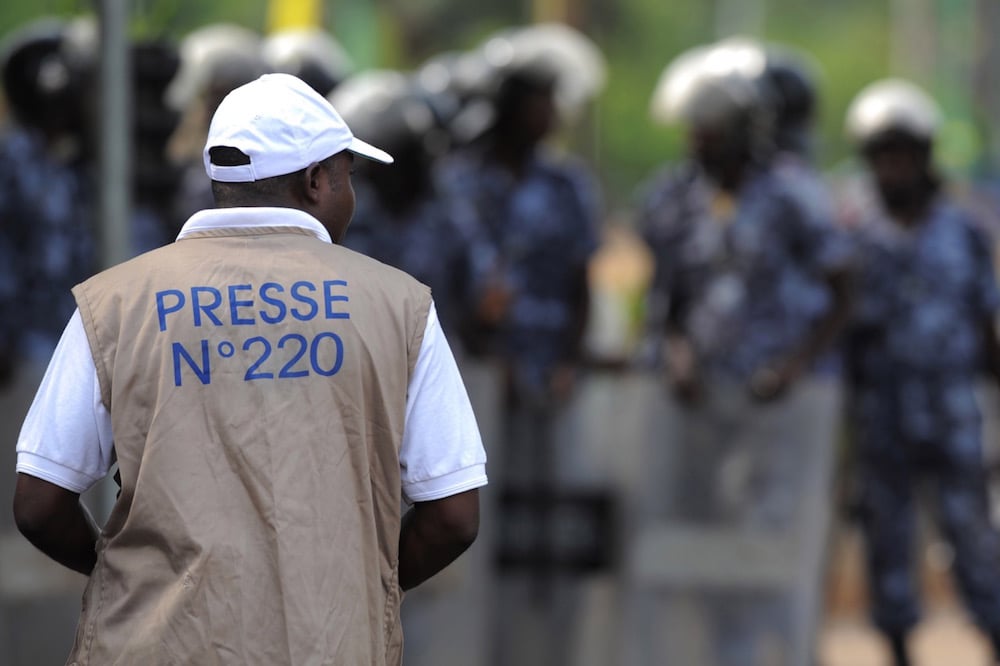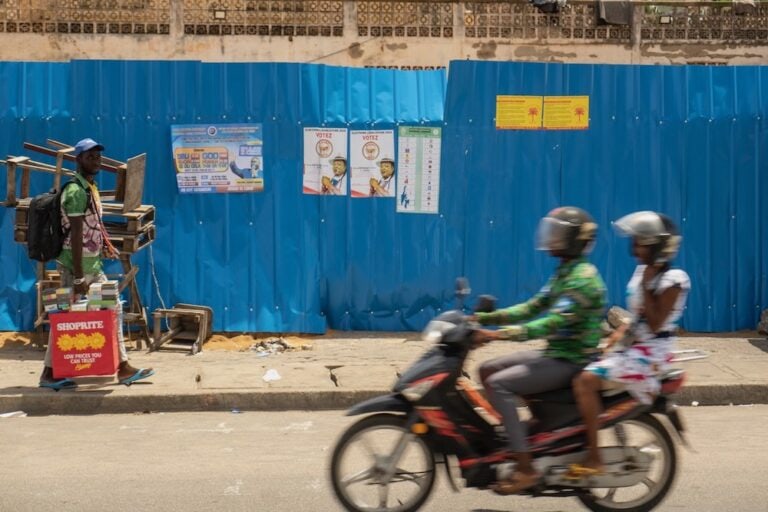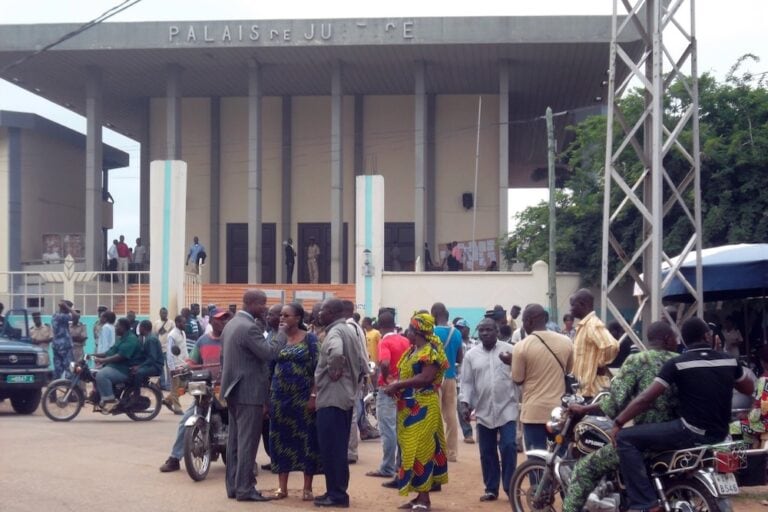Three Togolese journalists - Carlos Ketohou, Ferdinand Ayité, and Luc Abaki on the #PegasusProject list of potential targets - share their psychological experiences of what it means to be under surveillance.
This statement was originally published on cpj.org on 22 September 2021.
When Komlanvi Ketohou fled Togo in early 2021, he left behind his home, his family, and his cell phone that the gendarmerie seized when they arrested and detained him over a report published by his newspaper, L’Independant Express. In July, Ketohou, who goes by Carlos, learned that the phone number connected to the device they took may have been targeted for surveillance years before his arrest.
The revelation came via the Pegasus Project, a collaborative global media investigation detailing how thousands of leaked phone numbers, including many that belonged to journalists, were allegedly selected for potential surveillance by clients of the Israeli firm NSO Group. In addition to Ketohou, Togolese journalist Ferdinand Ayité, director of L’Alternative newspaper, was also on the Pegasus Project list, according to Forbidden Stories, one of the project’s partners. A third Togolese journalist, freelancer Luc Abaki, was similarly selected as a potential spyware target, according to a representative from Amnesty International, another of the project’s partners, who confirmed his number’s listing to Abaki and then to CPJ.
The use of NSO Group’s Pegasus spyware on these journalists’ phones has not been confirmed and NSO Group denied any connection to the list. But the three journalists told CPJ in multiple interviews conducted via email, phone, and messaging app that learning of their status as potential surveillance targets heightened their sense of insecurity, even as they continue to work in the profession.
“I spent nightmarish nights thinking about all my phone activities. My private life, my personal problems in the hands of strangers,” Ketohou said. “It’s scary. And it’s torture for me.”
The potential use of Pegasus spyware to surveil journalists in Togo adds to an already lengthy list of the country’s press freedom concerns. In recent years, journalists in Togo have been arrested and attacked, had their newspapers suspended over critical coverage, and struggled to work amid disrupted access to internet and messaging apps, CPJ has documented.
NSO Group has said it only sells its spyware, which allows the user to secretly monitor a target’s phone, to governments for use investigating crime and terrorism. Yet Pegasus has been repeatedly used to target members of civil society around the world, including Togolese clergy in 2019, according to Citizen Lab, a University of Toronto-based research group which investigates spyware. Over 300 Togolese numbers appeared on the Pegasus Project list of potential targets, Le Monde, another partner in the project, reported.
“I was very afraid,” Ketohou told CPJ after he said he was informed by Forbidden Stories that his number was listed in 2017 and 2018. He said it confirmed his decision to go into exile, where he started a new news site, L’Express International, after Togo’s media regulator barred L’Independant Express from publishing in early 2021 as CPJ documented. He asked CPJ not to disclose his location for security reasons.
Ketohou told CPJ that he couldn’t point to a specific article that may have triggered potential surveillance, but said that at the time his phone was selected his newspaper was reporting on nationwide protests – which began in 2017 – opposing President Faure Gnassingbé’s rule. His position at the time as president of the Togolese Press Patronage, a local media owners’ association, and membership in the Togolese League for Human Rights (LTDH) advocacy group may have contributed to interests in having his phone monitored, Ketohou added.
L’Alternative director Ayité told CPJ that he was not certain what caused his phone number to be selected in 2018, as Forbidden Stories informed him, but that year his newspaper published what he described as “sensitive” reports on the political crisis surrounding the protests and the mediation efforts by surrounding countries.
He said the selection of his number for potential surveillance fit a pattern of Togolese authorities’ efforts to intimidate him and L’Alternative.



